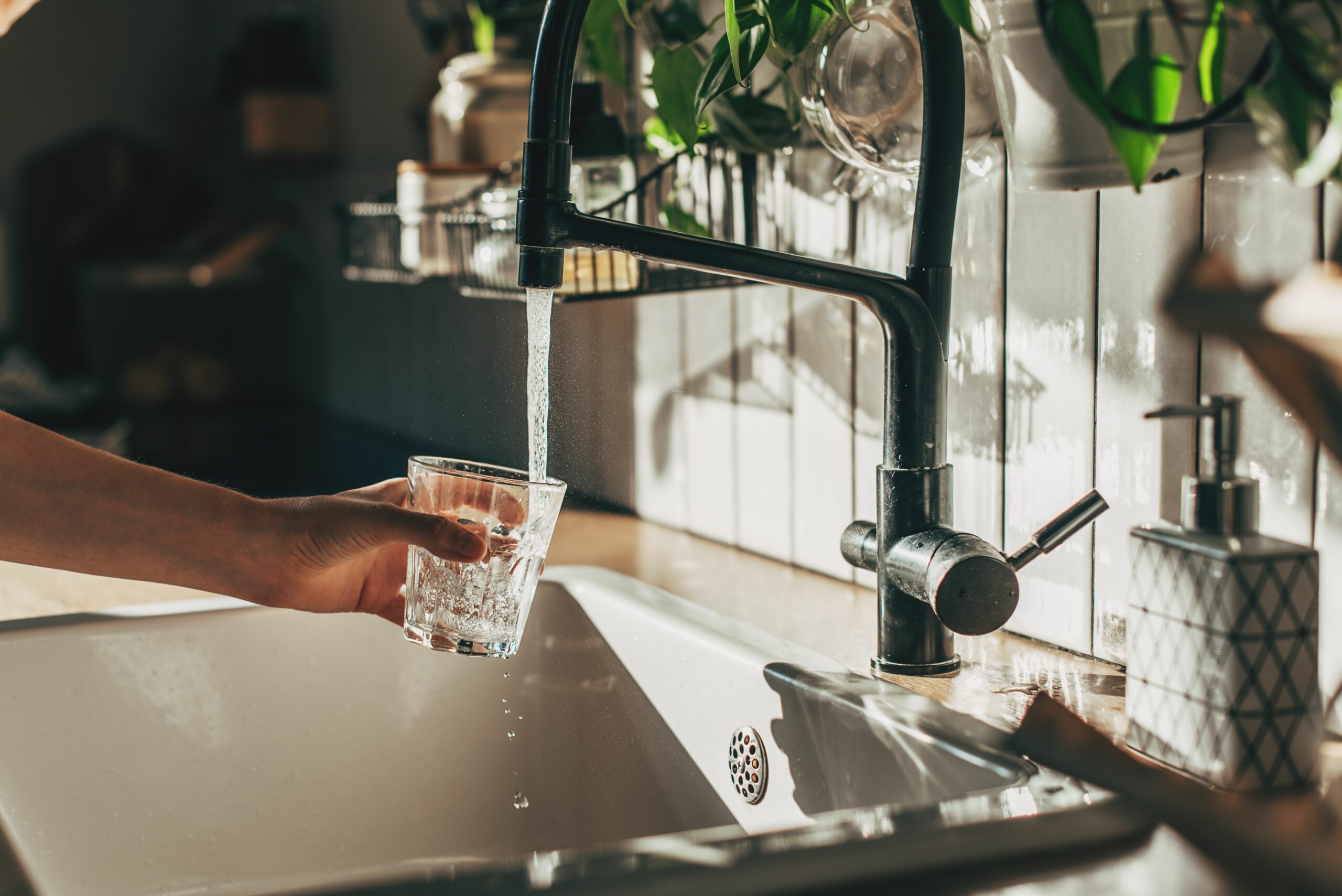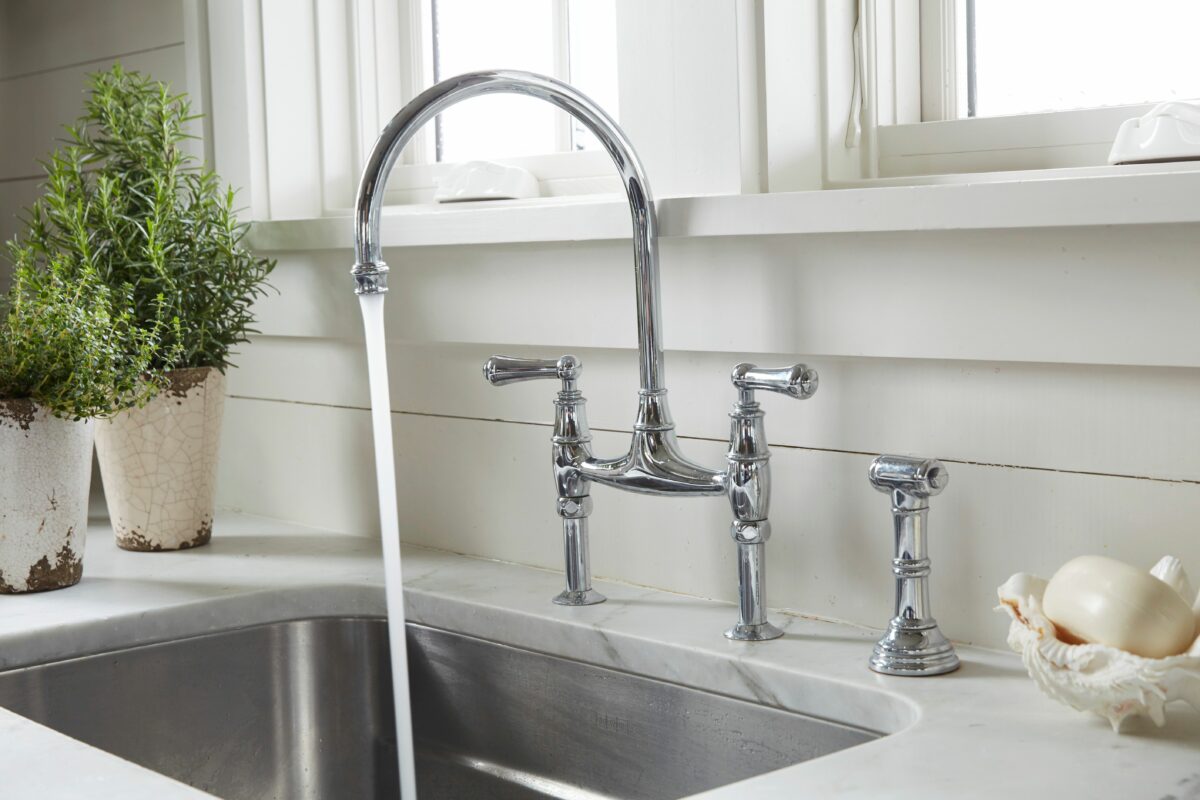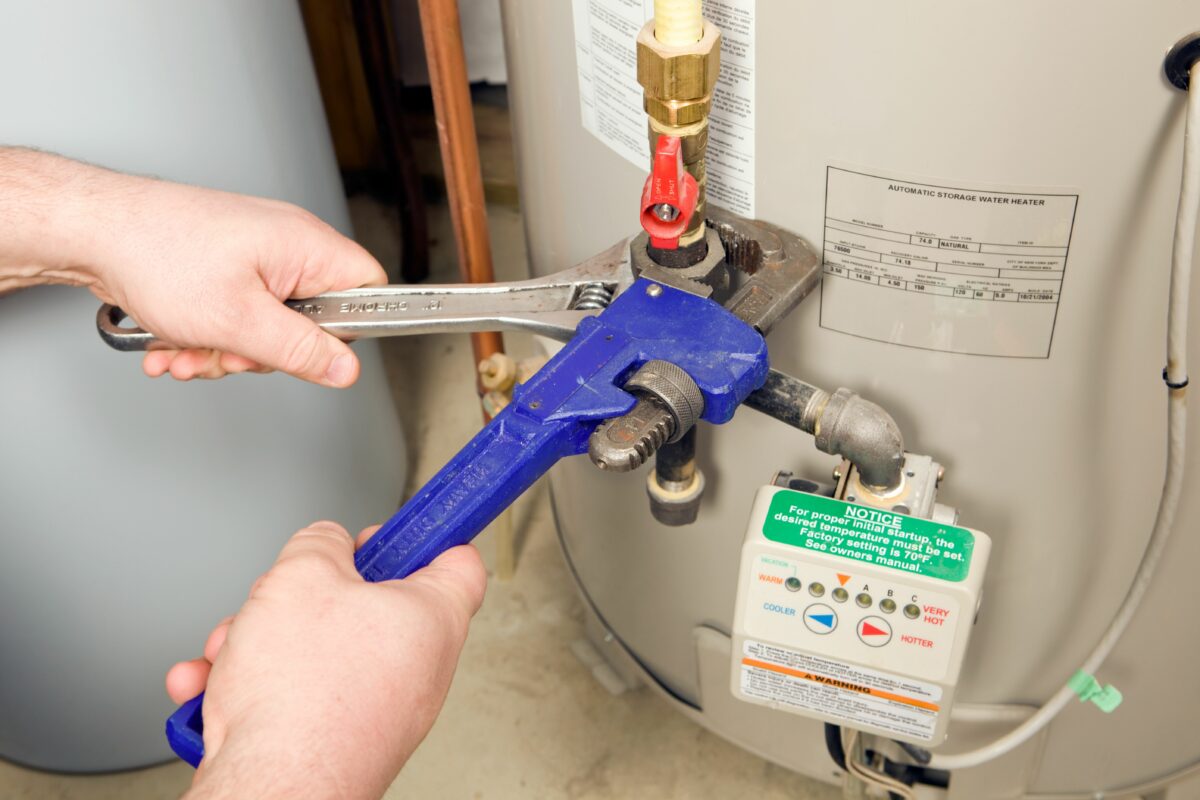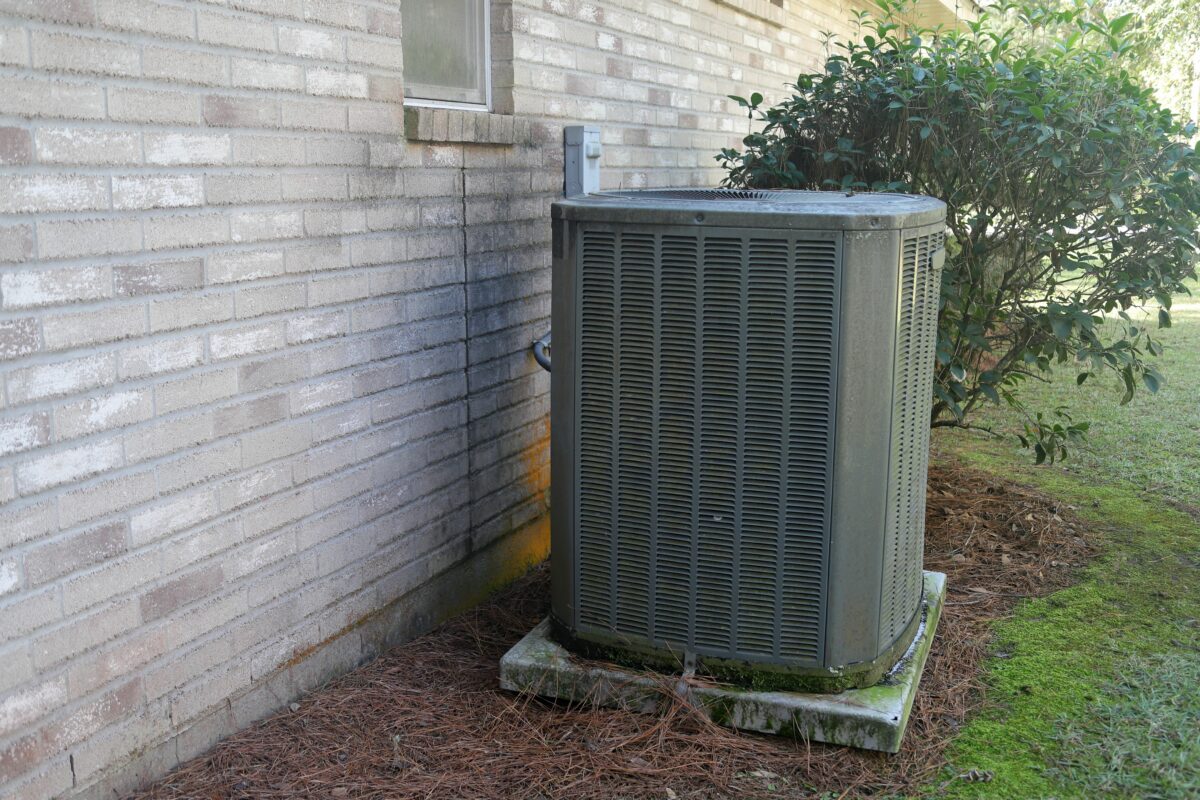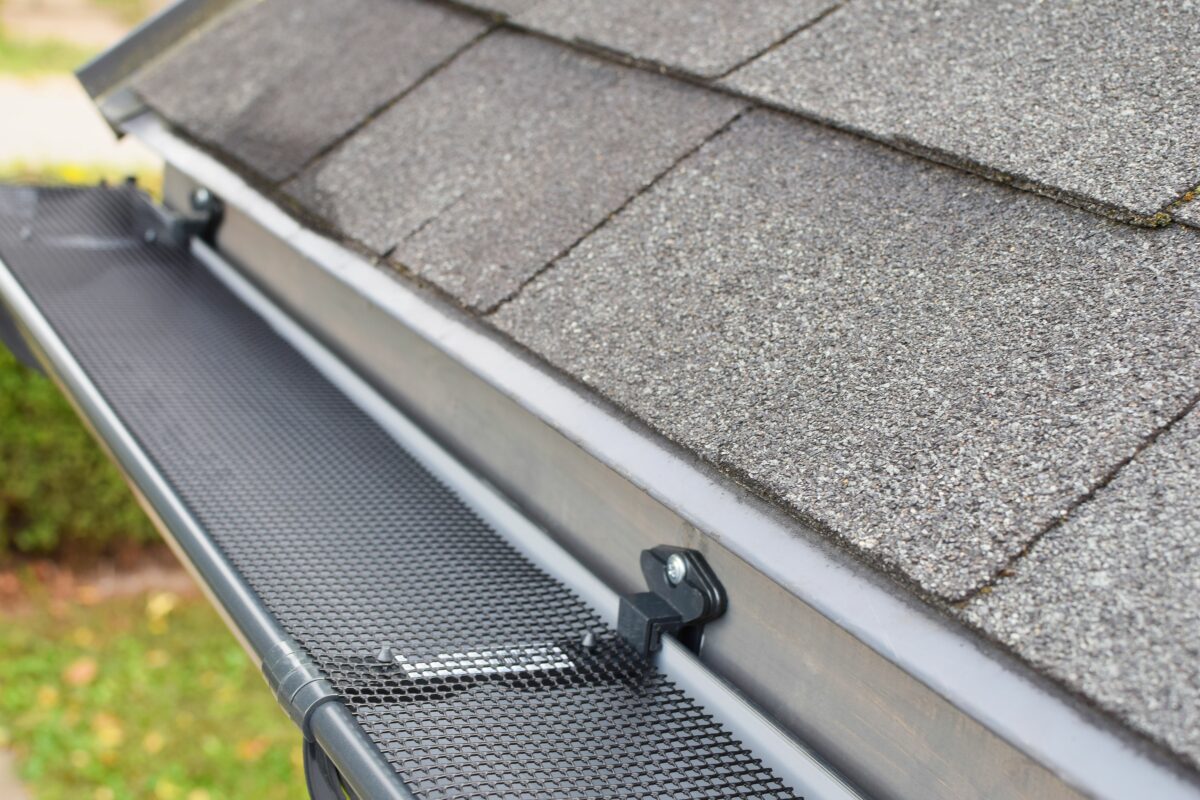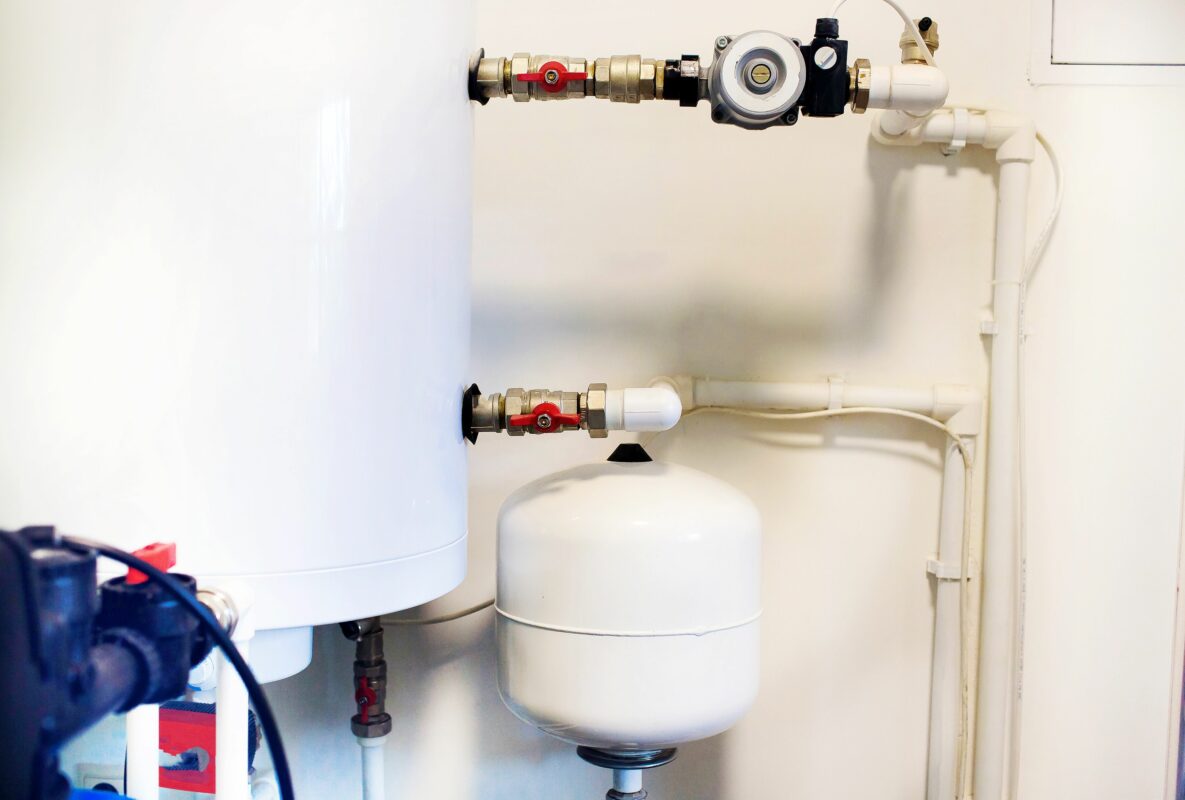Few things are more off-putting than taking a drink of water or washing dishes only to encounter a foul odor. Given that we use water for cooking, cleaning, drinking, and bathing, it’s wise to be concerned if your home’s water starts to smell. Depending on the source of the smell, consuming the water could be harmless or a serious health hazard.
Narrow down the source of the problem by checking the cold and hot water supply at each of the faucets throughout the home. If the issue is present in every faucet, the main water supply is the likely source. If it only occurs when the hot water is on, the problem is generally due to the water heater, but if the smell is only noticeable at certain faucets, then the problem may be limited to the nearby plumbing. Additionally, identifying the specific smell can help determine what may be causing the issue. Use this guide for more information and to find the answer to the question: Why does my water smell?
Why Does My Water Smell Like Chlorine?
High Concentration of Chlorine in the Public Water Supply
Chlorine is often present in public water supplies at a level of about 0.2 to 2.0 parts per million (ppm), but in some cases, the chlorine levels can go as high as 5 ppm, which can result in mild chlorine odors. Usually, the odor dissipates naturally within a few minutes after the water is exposed to the air, but it’s worth contacting your water supply authority to ask about the local chlorine levels.
Shock Chlorination
Homeowners with well systems may use shock chlorination to eliminate bacteria, viruses, and other contaminants, but this process leaves a high level of chlorine in the water. The chlorine smell tends to fade when the chlorine dissipates, so after shocking the system, it’s a good idea to turn on the outside faucets and let the water run until the smell is gone.
Interaction Between Chlorine and Organic Materials in the Pipes
Chlorine present in the water may interact with the organic material that builds up inside the plumbing system’s pipes. This can create a chlorine scent, though the smell should disappear after running the water for a few minutes. If the smell doesn’t fade, contact your local water supply authority about the problem. If you are on a well system, you need to hire a professional to flush the water supply.
Why Does My Water Smell Like Rotten Eggs?
Bacterial Growth in the Plumbing System
The scent of sulfur or rotten eggs is common in plumbing systems. This smell typically occurs when there is a high level of bacterial growth in the drain, the water heater, or the well. Over time, organic matter can accumulate in the drains, becoming a prime area for bacterial growth. Similarly, if the water heater is turned off or set to a low level for an extended period, bacteria can thrive in lukewarm conditions.
Disinfecting and flushing the drain can eliminate the rotten egg smell, but if the bacterial issue is present in the water heater, you may need to replace the anode rod and drain and flush the tank. If the scent is coming from both the hot and cold water supply, the source of the smell is likely the well system.
Well contamination is a serious problem that can be caused by agricultural runoff, a leaking septic system, or rampant bacterial growth in the area. Contact a pro to find the source of the contamination, fix the leak, and shock chlorinate the well system to get rid of any remaining bacteria. If you are on a public water supply and the smell is coming from both the hot and cold water, contact the water supply authority or county health department immediately.
Why Does My Water Smell Like Sewage?
Decaying Organic Matter in the Drain
A sewage scent around the sink is often caused by decaying organic matter in the drain. The good news is that the water is not contaminated. However, the scent will linger until the issue is resolved. To get rid of decaying organic matter, dump half a cup of baking soda into the drain and pour half a cup of vinegar into it. Give the chemical reaction about 15 minutes to work, and then use hot water to flush the drain.
Decaying Organic Matter in the Well Pressure Tank
When the sewage smell seems to be coming from the tap water and not just the sink, it may indicate that decaying organic matter is present in the well storage or pressure tank. Cleaning and maintaining the pressure tank regularly are necessary to prevent or eliminate this issue. Drain, purge, and flush the well pressure tank to remove built-up decaying organic matter, and consider disinfecting the well system with a chlorine solution.
Polluted Well Water
Sewage smells may also come directly from the well water if the system has become contaminated or polluted with bacteria or decaying organic matter. You should treat this issue immediately by having a professional shock chlorinate the well system. It may be worth installing an automatic chlorinator and an activated carbon filter to treat any future issues. If you are on a public water supply, contact the water supply authority or the county health department.
Why Does My Water Smell Musty?
Iron Bacteria Creating an Iron and Oxygen Mix
A musty or earthy scent in your water is typically due to a high concentration of iron in the plumbing lines or water supply. When iron and oxygen mix, it can create an ideal environment for iron bacteria to thrive. This type of bacteria is not harmful to humans, but it can produce a red or brown slime that sticks to the interior of the pipes. The musty smell is caused when the iron bacteria in the water die and emit a musty odor.
Algae Blooms in the Well or Public Water Supply
In some cases, an algae bloom in the well or public water supply can cause the water to smell musty. When algae gets into the well system, you should avoid drinking the water until the well can be disinfected. Typically, a public water supply is closely monitored, but in rare cases, algae may get into the city’s water supply source. If you suspect this is the case, avoid drinking the water and report the issue to the local water authority.
Why Does My Water Smell Fishy?
Presence of Barium or Cadmium
Barium or cadmium in the water can cause a fishy smell. Barium is a common metal found in mineral ores. This metal can seep into the well system or the main water supply pipes, causing a fishy odor. Similarly, cadmium may seep into the plumbing system from industrial waste or fertilizer contamination, giving the water a fishy odor. Installing a reverse osmosis filtration system can treat this issue and get rid of the fishy scent.
High Levels of Ammonia
When the water has a high enough level of ammonia, the ammonia may react with low levels of chlorine to form a compound known as chloramine. The best method for treating high ammonia levels and filtering chloramine is a water treatment system, like a reverse osmosis filter or granular activated carbon (GAC) filtration system.
Algae Contamination
Algae contamination can occur when lakes or reservoirs have algae blooms during the warmer months of the year. This contamination gives the water a musty scent, but it may also produce a fishy smell. If you are on a well system, have the well disinfected, but if you are connected to the public water supply, contact the local water authority to report the problem.
Why Does My Water Smell Like Wet Dog?
High Levels of Lead, Copper, Magnesium, Iron, or Sodium
A wet dog scent is bad enough coming from your dog, so when it comes from your water supply, it can be concerning. High concentrations of common metals, including lead, copper, magnesium, iron, or sodium, can cause water to smell like a wet dog. A water filtration system designed to capture these minerals before they reach the faucet can treat this.
Bacteria Buildup
Another reason water smells like a wet dog is bacteria buildup. Iron bacteria, in particular, tend to thrive in residential plumbing systems, creating a red or brown slime on the interior of the pipes. Water filters or purifiers can remove bacteria and other impurities from the tap water, although if you have a well system, it may be a good idea to have the well disinfected and shock chlorinated to remove any contaminants.
Why Does My Water Smell Like Metal?
Metal Pipe Deterioration
There are several reasons why your water may smell and even taste like metal. The most common cause is that the metal pipes throughout the home are beginning to deteriorate. This typically happens when pipes age, allowing manganese, zinc, iron, or copper to enter the water. Replacing the pipes can treat this issue, although a more affordable solution is to install a reverse osmosis filter or water softener.
High Levels of Iron, Copper, Lead, Manganese, Zinc, or Other Metallic Minerals
Water from a well or public water supply can contain high levels of various metals and minerals, including iron, copper, lead, manganese, and zinc. This high concentration of minerals can cause the water to smell like metal, but solving the issue is as easy as installing a water filter or water softener. Even a small point-of-use water softener at the kitchen sink will be a significant improvement.
Water Has a Low pH Level
Metallic-smelling and metallic-tasting water may also be due to a low pH level. Generally, the lower the pH level of the water, the more metallic it tastes. Fixing this issue is possible by installing a point-of-use remineralizing filter at the kitchen sink to raise the pH of the water slightly.
Why Does My Water Smell Like Gas?
Leaking Fuel Tank
If the water in your home smells like gas, this is a sign of a serious issue. Do not drink or use the water. This issue could be due to a leaking fuel tank located above or underground that may be contaminating the water supply. Look for an oil or fuel spill on the driveway or in front of the house. Clean up any spills immediately and contact your local water authority immediately.
Discharge from Factories or Landfills
Nearby factories and landfills can produce hazardous discharges that may contaminate the local water well or even the public water supply. Contact the local water authority to report the problem. If you are on a well system, you need to identify the source of contamination, devise a fix, and flush the entire water system with the help of a licensed well driller or pump installer.
Runoff from Agriculture
Similar issues can occur due to runoff from nearby agricultural sites. To deal with agricultural runoff contamination, it’s necessary to report the problem to the local water authority if you are connected to a public water supply. However, if you have a well system, you need to hire a professional to identify the source of contamination, suggest a fix, and flush the entire water system.


